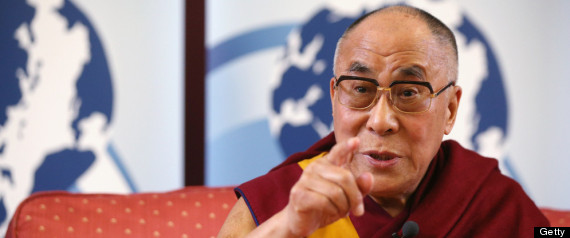 Tibetans setting themselves on fire to protest against Chinese rule are having little effect on Beijing's policies, exiled Tibetan spiritual leader the Dalai Lama said on Thursday, while urging China to look harder at the reasons behind the incidents.
Tibetans setting themselves on fire to protest against Chinese rule are having little effect on Beijing's policies, exiled Tibetan spiritual leader the Dalai Lama said on Thursday, while urging China to look harder at the reasons behind the incidents.
At least 117 Tibetans have set themselves alight in protest against Chinese rule since 2009, mostly in heavily Tibetan areas of Sichuan, Gansu and Qinghai provinces rather than in what China terms the Tibet Autonomous Region. Most have died.
"It's a sad thing that happens. Of course it's very very sad. In the meantime, I express I doubt how much effect (there is) from such drastic actions," the Dalai Lama told reporters during a visit to Australia.
A Chinese official in March accused the Dalai Lama of providing money to encourage people to set themselves on fire, and said there was evidence to prove the Nobel Peace Prize laureate was orchestrating the self-immolations.
The Dalai Lama, 77, has called the acts "understandable," but says he does not encourage them.
Several Tibet scholars have criticized his stance, saying his reluctance to tell his people to stop has strengthened their resolve to continue the fiery protests.
Beijing considers the Dalai Lama, who fled from China in 1959 after an abortive uprising against Chinese rule, a violent separatist. The Dalai Lama says he is merely seeking greater autonomy for his Himalayan homeland.
The Dalai Lama said the immolations were a sensitive political issue, but said Tibetans were not sacrificing their lives because of simple social or family grievances.
"I express this as a symptom of some causes of Chinese officials. They must investigate what is the cause of this symptom, of these events. It's not the solution just to blame someone, including the Dalai Lama," he said.
China has tightened already strict controls in Tibet since the self-immolations began two years and has all but banned visits by foreign journalists.
Tibet has also been a cause of diplomatic friction, especially with the United States, where meetings between the Dalai Lama and U.S. presidents have infuriated China.
The U.S. State Department has urged China to allow Tibetans to "express grievances freely", while calling on Tibetans to "end self-immolations".
The Dalai Lama said Tibetans could "easily hurt other people", but instead were choosing "to sacrifice their own lives, not hurting others".
China has defended its iron-fisted rule in Tibet, saying the mountainous region suffered from dire poverty and brutal exploitation until 1950, when Communist troops "peacefully liberated" it.
REUTERS
 Tibetans setting themselves on fire to protest against Chinese rule are having little effect on Beijing's policies, exiled Tibetan spiritual leader the Dalai Lama said on Thursday, while urging China to look harder at the reasons behind the incidents.
Tibetans setting themselves on fire to protest against Chinese rule are having little effect on Beijing's policies, exiled Tibetan spiritual leader the Dalai Lama said on Thursday, while urging China to look harder at the reasons behind the incidents.
No comments:
Post a Comment